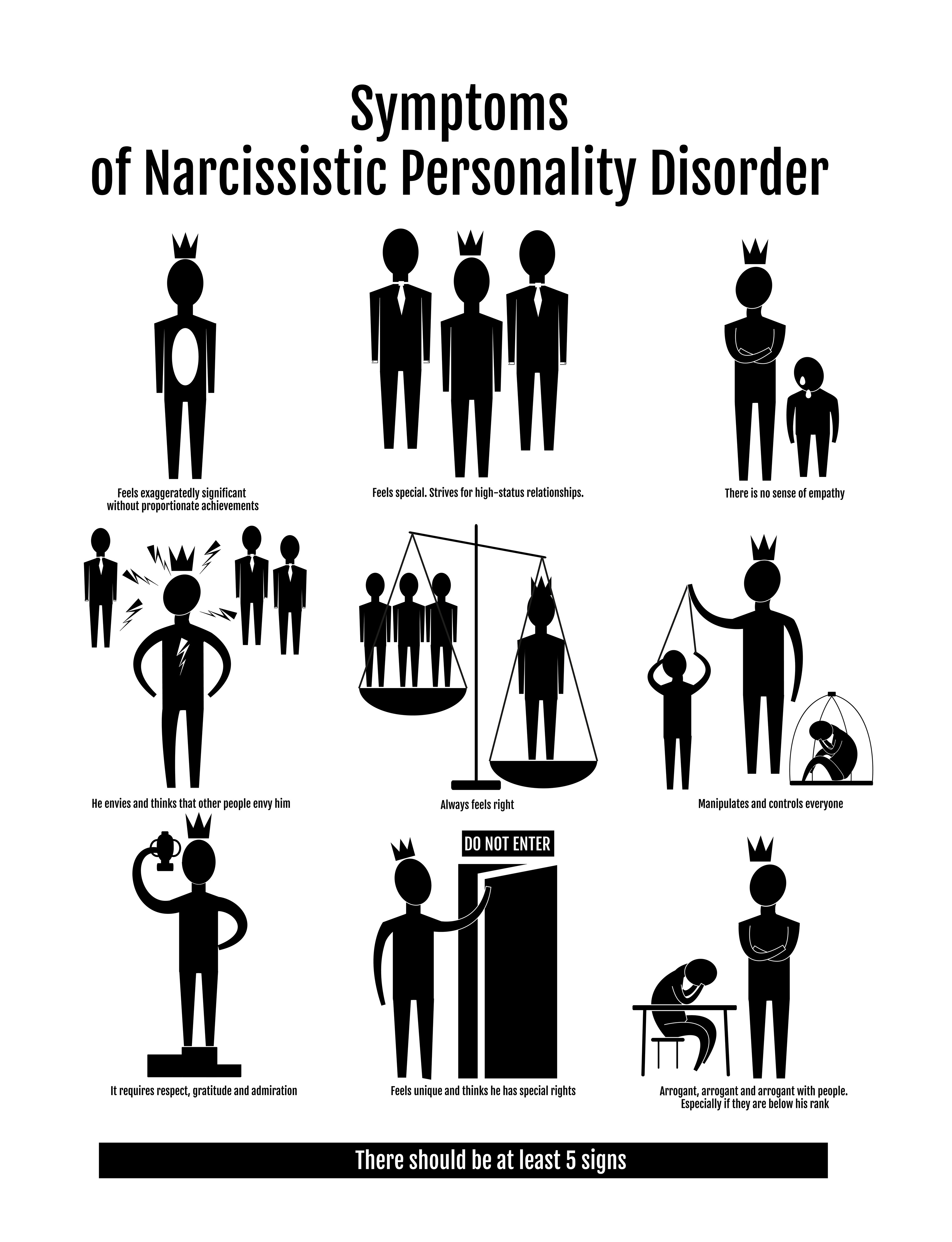As a BetterHelp affiliate, we receive compensation from BetterHelp if you purchase products or services through the links provided
Let me tell you, narcissistic parental alienation is no walk in the park. Imagine one parent turning the child against the other, all to maintain an iron grip on everyone involved. Yep, that’s what I’ve been living through, and it’s a chaotic mess fueled by my ex’s narcissistic tendencies.
The ripples of this manipulation are anything but shallow. They reach far and wide, affecting not just my kids but me and the overall family dynamics. My children, caught in this web, struggle with their sense of self, and I see emotional and psychological tolls piling up. For me? It’s been a crushing sense of isolation and helplessness as my ex continues to play her damaging games.
? Key Takeaways:
- Narcissistic parental alienation wreaks havoc on everyone, especially the kids.
- Children manipulated in this manner are at risk of enduring emotional and psychological scars.
- Targeted parents like me are often left grappling with helplessness and isolation.
So, if you’re going through this, know you’re not alone. It’s a battle, but understanding the complexities gives us the tools to fight it.

Understanding Narcissistic Parental Alienation
Defining Narcissism
Narcissism is a personality trait characterized by an inflated sense of self-importance, a strong need for admiration, and a lack of empathy for others. People with narcissistic personality disorder (NPD) can be manipulative and controlling, often using others to fulfill their needs and desires.
Defining Parental Alienation
Parental alienation is when a child becomes estranged from one parent, usually due to the negative influence of the other parent. This can involve badmouthing the targeted parent, interfering with their visitation or communication, or even making false allegations against them. The goal is to turn the child against the targeted parent and gain control over the child’s emotions and loyalties.
In the case of narcissistic parental alienation, the alienating parent has NPD traits and uses manipulative tactics to turn the child against the other parent. This can include:
- Constantly criticizing the targeted parent
- Manipulating the child to feel guilty or responsible for the narcissistic parent’s needs
- Punishing the child for showing love or loyalty to the targeted parent
- Encouraging the child to question the love and intentions of the targeted parent
Tips for dealing with narcissistic parental alienation:
- Maintain consistent communication with your child, showing that you love and support them unconditionally
- Remain calm and patient when faced with the narcissistic parent’s tactics
- Provide your child with a safe space to express their feelings without judgment or coercion
- Seek professional assistance when necessary, such as therapy for your child or legal counsel to protect your rights as a parent.
Key takeaway: Narcissistic parental alienation is a complex and harmful situation where a parent with narcissistic traits attempts to turn a child against the other parent. Understanding the dynamics of narcissism and parental alienation can help you navigate these challenges and ensure your child’s well-being.

Impact on the Alienated Child
Psychological Effects
The impact of narcissistic parental alienation on the alienated child can be deep and long-lasting. A few common psychological effects the child may experience include:
- Depression: The child might feel unloved and rejected, leading to symptoms of depression.
- Anxiety: The continuous manipulation and emotional abuse can cause the child to develop anxiety disorders.
- Low self-esteem: Children may question their self-worth as they internalize the negative messages from the alienating parent.
It’s important to recognize these psychological effects, as they can impact the child’s mental well-being.
Behavioral Changes
Narcissistic parental alienation can also significantly change the child’s behavior. Some of the behavioral changes you might notice include:
- Disrespect: The alienated child may start disrespecting the targeted parent, following the example set by the alienating parent.
- Estrangement: The child may distance themselves from the targeted parent, leading to a strained or non-existent relationship.
- Mimicking Manipulative Behaviors: As a result of the psychological manipulation, the child might adopt these behaviors, applying them in their relationships with others.
By understanding the potential impact of narcissistic parental alienation on a child, you can better support their emotional needs and ensure they receive the help they need to recover from their experiences.
 Characteristics of the Alienating Parent
Characteristics of the Alienating Parent
Recognizing Narcissistic Behaviours
When dealing with narcissistic parental alienation, it’s essential to recognize the narcissistic behaviors of the alienating parent. These behaviors are often subtle and can be mistaken for typical parental instincts or concerns. However, they may include:
- Lack of empathy: The narcissistic parent may have trouble showing genuine concern or understanding for their child’s feelings and needs.
- Extreme selfishness: This parent places their wants and needs above their child’s, often neglecting their emotional well-being.
- Manipulation and control: Narcissistic parents try to control their children using guilt, fear, or other tactics.
- Jealousy and revenge: They may become jealous of their child’s relationships with others and seek revenge on those who they feel have wronged them or taken away their control.
- Gaslighting: This is a manipulative technique used by narcissistic parents to make their children doubt their reality and perceptions.
Role of Manipulation
Manipulation plays a significant role in narcissistic parental alienation. Here’s how the alienating parent might use manipulation tactics:
- Exploiting the child’s emotions: They could use their love, trust, and loyalty against them by making them feel guilty or responsible for the parent’s feelings.
- Smear campaigns: The alienating parent might create a false narrative about the other parent, painting them in a negative light and trying to gain sympathy from their child.
- Isolation: They may try to isolate their child from the other parent and their relatives, friends, or support networks, leaving the child solely dependent on the alienating parent.
- Interference in communication: The narcissistic parent may monitor and control the child’s communication with the other parent or potentially block it entirely, further driving a wedge between them.
Recognizing these behaviors and understanding their impact is crucial to addressing narcissistic parental alienation and helping your child navigate this challenging situation. Stay aware of these characteristics and seek professional support if you suspect your child may be experiencing abuse.

Legal Issues and Narcissistic Parental Alienation
Custody Battles
When dealing with narcissistic parental alienation, custody battles can be intense and challenging. The narcissistic parent may use various tactics to manipulate the situation in their favor:
- Discrediting the other parent
- Encouraging the child to express resentment towards the other parent
- Exaggerating or fabricating flaws in the other parent’s character or behavior
As a result, the court may have difficulty determining the best custody arrangement for the child.
Involvement of Law Professionals
Involving law professionals is crucial to navigating these cases’ complex legal aspects. Consider working with:
- Family law attorneys: specializing in child custody cases and experienced in dealing with narcissistic parental alienation
- Therapists and counselors: able to support you and your child during this challenging time
These experts can help you build a strong case and provide guidance on gathering evidence, such as documentation of the alienating tactics used by the narcissistic parent.
False Allegations
Narcissistic parents may make false allegations against the other parent to strengthen their custody case. This may include accusations of:
- Abuse, neglect, or violence
- Substance abuse
- Unstable mental health
To protect yourself from such claims, you should:
- Keep thorough records of interactions, conversations, and incidents involving the other parent and your child
- Obtain witness statements from neutral third parties who can attest to your parenting abilities
- Collaborate with your legal team to refute false allegations and present proof of your suitability as a parent
Remember, it’s important to remain calm and focused on your child’s well-being during this process. By following these steps and working closely with law professionals, you can navigate the difficult terrain of narcissistic parental alienation and its associated legal challenges.
Targeted Parent and Co-Parenting
As a targeted parent, navigating the complex world of narcissistic parental alienation can feel overwhelming. Maintaining a healthy relationship with your child may seem impossible while also dealing with the associated stress and challenges of co-parenting. This section will explore strategies to help you survive the alienation and manage stress and anxiety.

Surviving the Alienation
Prioritizing your well-being and mental health is essential throughout this challenging experience. Here are some tips to help you survive the alienation:
- Stay connected to supportive friends and family members who understand your situation and can offer encouragement.
- Stick to consistent routines and schedules to help maintain stability in your and your child’s lives.
- Educate yourself about narcissistic parental alienation and seek professional help from a therapist or counselor specializing in this area.
- Record your interactions with your co-parent and any incidents of alienation as evidence.
- Remember that your relationship with your child is strong and will endure despite the difficulties.

Handling Stress and Anxiety
Managing stress and anxiety is crucial when faced with narcissistic parental alienation. Here are some strategies to help you cope:
- Practice self-care, such as exercise, meditation, or hobbies that bring joy and relaxation.
- Seek therapy or counseling to help you process your emotions and develop coping mechanisms.
- Stay grounded and focus on your role as a loving, supportive parent.
When co-parenting, setting boundaries and maintaining open communication is essential. Here are some suggestions for co-parenting effectively:
- Establish clear and consistent boundaries with your co-parent to minimize potential conflict and manipulation.
- Keep communication focused on your child’s needs and well-being, avoiding personal disputes.
- Consider using a neutral third party to facilitate communication if necessary.
As you navigate this challenging situation, remember the importance of your relationship with your child and prioritize your well-being. By staying connected to your support system, seeking professional help, and practicing healthy coping strategies, you can maintain a positive presence in your child’s life and work towards healing from the alienation.

Treatment and Support for Victims
Therapeutic Interventions
If you have been a victim of narcissistic parental alienation, seeking professional help from a mental health expert can be incredibly beneficial. You might consider reunification therapy, which focuses on rebuilding and strengthening the relationship between the alienated parent and child. This therapy aims to heal the pain and restore a healthy family dynamic.
A skilled therapist can help the alienated parent and child navigate their feelings and emotions, guiding them toward a deeper understanding and compassion for one another. By focusing on kindness and empathy, the therapist helps to create a supportive environment for healing and growth. Remember, working with a professional experienced in dealing with family violence and alienation issues is essential.
Support Groups
In addition to therapeutic interventions, joining a support group can provide victims with much-needed encouragement and resources. Support groups can be beneficial for both the alienated parent and the child. Here are some ways support groups can help:
- Fostering connections: Support groups facilitate the development of new friendships and connections with others who have faced similar experiences, making you feel less alone and isolated.
- Sharing advice: In a support group, you’ll have the opportunity to exchange valuable tips and insights with others who have gone through similar situations, learning from their experiences.
- Emotional support: Listening to others’ stories and sharing your own can be therapeutic to unburden your heart and experience emotional relief.
When seeking a support group, ensure that it’s focused on the issue of parental alienation and led by a qualified professional to ensure a productive and supportive environment.
Remember, seeking therapy and joining a support group are important steps toward reclaiming your life from the impact of narcissistic parental alienation. With the right help and resources, you can work toward healing yourself and your family.
Research and Studies on Narcissistic Parental Alienation
Role of DSM-5
The DSM-5, the Diagnostic and Statistical Manual of Mental Disorders (5th edition), is an important resource for understanding various mental health disorders. Although the DSM-5 does not specifically classify narcissistic parental alienation as a distinct disorder, it does include criteria for narcissistic personality disorder (NPD), which may be relevant. A parent with NPD may engage in manipulative behaviors that lead to parental alienation syndrome.
It’s essential for you, as a reader, to recognize that the DSM-5 may not address every situation leading to narcissistic parental alienation. However, it can provide insights into a parent’s thought processes and actions with NPD.
Current Research Findings
Parental alienation syndrome has been a topic of study for many researchers. Some key findings you should be aware of include:
- Children who are victims of narcissistic parental alienation may experience a range of negative outcomes, such as anxiety, depression, and difficulties forming relationships later in life.
- The alienating parent often displays traits of narcissistic personality disorder, including a lack of empathy, entitlement, and manipulation.
Some research has focused on the strategies used by the alienating parent, which can include:
- Badmouthing the other parent in front of the child
- Limiting the child’s contact with the other parent
- Creating mistrust and fear about the other parent
To better understand and address narcissistic parental alienation, current research recommends:
- Early intervention by teachers, therapists, lawyers, and the court system can mitigate the harmful effects on the child involved.
- Encouraging communication and co-parenting between parents can foster a healthier environment for the child.
Use this information to increase your awareness of narcissistic parental alienation and its impacts on children and families. Knowledge is power, and by understanding the research, you’ll be better equipped to support those in your life who may be affected by this issue.
 Detect the Red Flags: A Checklist for Identifying Parental Alienation
Detect the Red Flags: A Checklist for Identifying Parental Alienation
If you’re wrestling with the question, “Is this parental alienation?”—you’re not alone. The experience can be disorienting, and distinguishing between standard post-divorce adjustments and deliberate, manipulative behaviors is often difficult. That’s why I’ve created this checklist for you so that you can detect the red flags early on.
? Sudden Emotional Distance: Has your child inexplicably become distant or less affectionate?
? Unexplained Anger: Is your child suddenly angry at you without any reasonable explanation?
? Rejection of Family: Has the child started to reject you and the extended family members they once had a good relationship with?
? Parroting the Alienating Parent: Does the child use phrases or express sentiments that seem to be directly lifted from the other parent?
? All Good vs. All Bad: Does your child paint one parent as the villain and the other as the hero without any shades of grey?
? Resistance to Visitation: Is your child overly resistant to spending time with you, even if they used to enjoy it?
? Secrecy and Avoidance: Does your child evade questions about their time with the other parent or act like they’re keeping secrets?
? Unjustified Fear or Discomfort: Is your child suddenly afraid of you or uncomfortable around you without a clear reason?
If you’re ticking off more than a couple of these boxes, it might be time to consult with a professional. Parental alienation is serious, and catching it early can make all the difference for you and your child.
Conclusion
Narcissistic parental alienation is a heartbreaking phenomenon that affects many children and families. It occurs when one parent, typically with narcissistic traits, manipulates a child into rejecting the other parent. This can have devastating consequences on both the targeted parent and the child’s emotional well-being.
To combat this harmful form of manipulation, it’s essential to:
- Stay informed: Educate yourself on narcissistic parental alienation syndrome and its effects on families.
- Seek professional help: Therapists, support groups, and legal advisers can provide crucial assistance in navigating this complex issue.
- Maintain your emotional health: Take care of your emotional well-being to better support your child and persevere in facing challenges.
- Keep communication open: Foster open dialogue and understanding with your child to build trust and resilience.
By taking these steps, you can help protect your child from the negative effects of narcissistic parental alienation and pave the way for a healthier, happier future together. Remember, knowledge is power, and you can overcome this challenging situation with the right tools and support.
Frequently Asked Questions
How do narcissists use children as pawns in alienation?
Narcissists may use children as pawns in alienation to manipulate, control, and hurt the other parent. They could:
- Encourage the child to reject or disrespect the other parent
- Withhold or limit communication and visitation between the child and other parent
- Spread false or negative information about the other parent
- Create a situation where the child feels the need to choose sides or protect the narcissistic parent
What are common signs of narcissistic parental alienation?
Common signs of narcissistic parental alienation may include:
- The child showing unjustified contempt or hostility towards the alienated parent
- The child expresses strong loyalty to the narcissistic parent, often siding with them unwarrantedly
- The child’s negative perception of the alienated parent is unfounded and exaggerated
- The alienated parent’s attempts to communicate or spend time with their child are constantly met with resistance or avoidance
How does covert narcissist behave in parental alienation?
A covert narcissist may be more subtle in their attempts at parental alienation, engaging in tactics like:
- Playing the victim, drawing sympathy from the child, and subtly blaming the other parent for their own issues
- Sabotaging the other parent’s relationship with the child through subtle manipulation or passive-aggressive behavior
- Creating the appearance of supporting the other parent while secretly undermining their authority and relationship with the child
- Using gifts, rewards, or affection as a means to win the child’s loyalty and create distance between the child and the other parent
Can a parent lose custody due to narcissistic alienation?
Yes, a parent can potentially lose custody or have their visitation rights affected due to narcissistic alienation, especially if the court determines that it harms the child’s emotional well-being or safety. This includes situations where:
- The alienating parent’s behavior causes significant damage to the parent-child relationship
- The alienating parent refuses to cooperate with court orders
- The child’s best interests are not being served in the current custody arrangement
What is the impact of narcissistic parental alienation on the child?
The impact of narcissistic parental alienation on the child can be emotionally and psychologically damaging, with potential consequences such as:
- Lower self-esteem and confidence
- Difficulty forming and maintaining healthy relationships
- Anxiety, depression, or other mental health issues
- Ongoing feelings of guilt or being torn between two parents
How do judges generally view cases of parental alienation?
Judges generally view cases of parental alienation as detrimental to the child’s best interests. They may:
- Order a psychological evaluation for the child and both parents
- Require family therapy or a reunification program to address the issues
- Modify custody or visitation arrangements to serve the child’s needs better and protect their emotional health
Unmasking the Shadow: Meet Jacob Maslow, a Survivor of Narcissistic Parental Alienation
Hello, I’m Jacob Maslow. A mental health advocate, therapy veteran, and sadly, no stranger to narcissistic parental alienation. I manage my mental health with Lexapro and take solace in long, head-clearing walks.
I’ve been down the twisted rabbit hole of divorcing a narcissist. You know the type—having affairs with community leaders only to defame them later. My ex has refused to comply with court-ordered shared custody, and as the years go by, her narcissism seems to flourish as her beauty wanes. Unfortunately, my children have become pawns in this ongoing saga, and communication with them has been severed.
But out of the darkness comes light. I’m not just a survivor; I’m a storyteller. I write about mental health and narcissism to help others navigate these murky waters. The struggle is real, but it doesn’t define you. My articles and legal advice site are lifeboats for those sinking in the chaotic seas of noncompliance and parental alienation.
So, if you’re dealing with a narcissistic ex or struggling with your mental health, know this—you’re not alone, and there’s a way out. I’ve walked through the fire and come out stronger, and so can you.
- 7 Ideas to Help You Relax and Unwind on a Family Vacation - April 27, 2025
- How Having Cybersecurity Protection Helps You Relax - April 25, 2025
- 8 Reasons Why Spending Time Outside Calms You Down - April 25, 2025
This site contains affiliate links to products. We will receive a commission for purchases made through these links.


 Characteristics of the Alienating Parent
Characteristics of the Alienating Parent Detect the Red Flags: A Checklist for Identifying Parental Alienation
Detect the Red Flags: A Checklist for Identifying Parental Alienation
